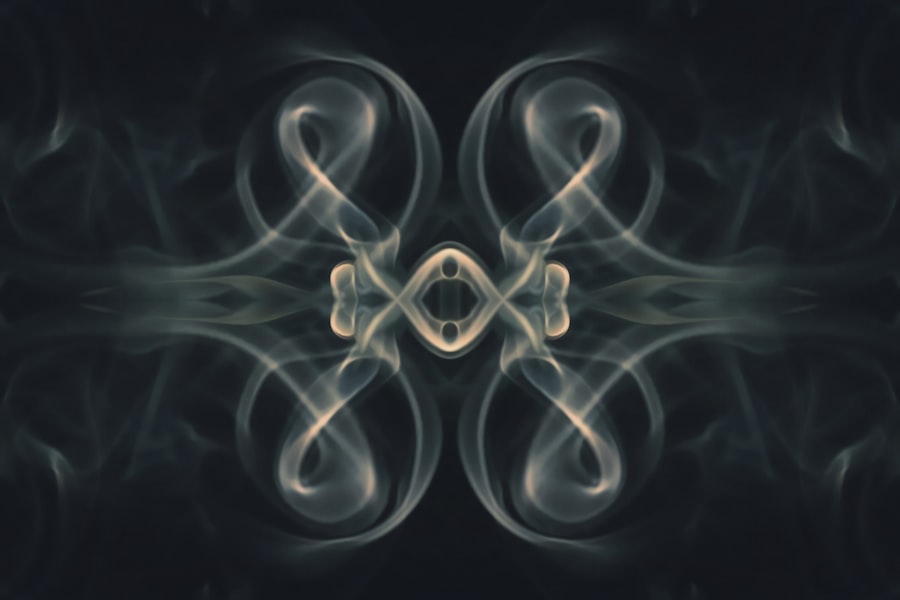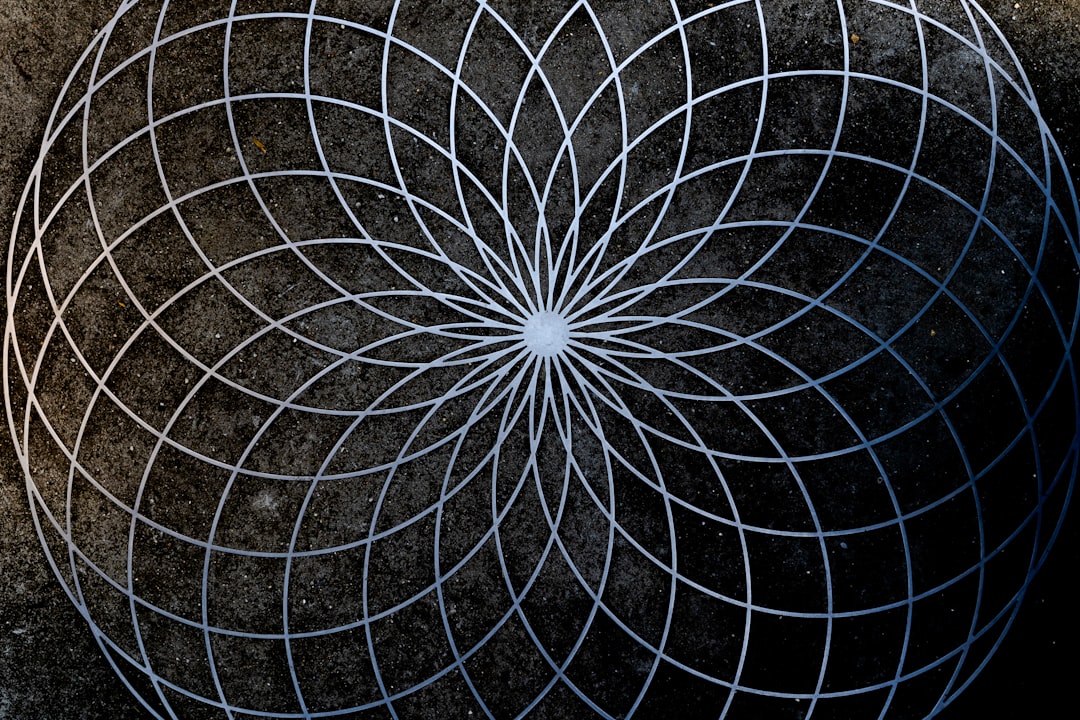As you delve into the concept of quantum consciousness, you may find yourself navigating a complex intersection of physics, philosophy, and psychology. At its core, quantum consciousness suggests that the principles of quantum mechanics may play a crucial role in understanding the nature of consciousness itself. This idea challenges traditional views that regard consciousness as merely a byproduct of biological processes.
Instead, it posits that consciousness could be fundamentally linked to the very fabric of reality, governed by the same principles that dictate the behavior of subatomic particles. You might wonder how such a seemingly abstract concept can have tangible implications for your understanding of self and existence. The exploration of quantum consciousness invites you to reconsider the boundaries of your mind and the universe.
It encourages you to think about consciousness not just as a state of awareness but as a dynamic interplay between the observer and the observed, where your thoughts and perceptions may influence the very nature of reality itself. This perspective opens up a realm of possibilities, suggesting that your consciousness could be more interconnected with the universe than you ever imagined.
Key Takeaways
- Quantum consciousness explores how quantum phenomena like entanglement and superposition may relate to human awareness and cognition.
- Quantum entanglement and coherence suggest interconnectedness and unified states that could underpin conscious experience.
- The observer effect and quantum decoherence highlight the role of measurement and environment in shaping consciousness.
- Quantum computing principles offer new models for understanding and simulating conscious processes.
- Eastern philosophy provides complementary perspectives on quantum consciousness, influencing practical applications in mindfulness and cognitive science.
The Quantum Mind: Exploring the Connection
The notion of a “quantum mind” proposes that your cognitive processes may be influenced by quantum phenomena. This idea stems from the observation that classical physics struggles to explain certain aspects of human cognition, such as intuition and creativity. By integrating quantum mechanics into our understanding of the mind, you may begin to appreciate how your thoughts and decisions could be shaped by underlying quantum processes.
This connection raises intriguing questions about free will, decision-making, and the nature of thought itself. As you explore this connection further, you might consider how quantum mechanics introduces concepts like uncertainty and non-locality into the realm of cognition. For instance, when you make a decision, it may not be a straightforward process but rather a complex interplay of probabilities and possibilities.
By embracing this quantum view of the mind, you can cultivate a deeper understanding of your own cognitive processes and their potential to shape your reality.
Quantum Entanglement and Consciousness

Quantum entanglement is one of the most fascinating phenomena in quantum mechanics, where particles become interconnected in such a way that the state of one instantly influences the state of another, regardless of distance. When you consider how this principle might relate to consciousness, it opens up a captivating dialogue about interconnectedness and shared experiences. You may find yourself pondering whether your consciousness is entangled with others, creating a web of shared thoughts and emotions that transcends individual experience.
This idea can lead you to reflect on the nature of relationships and empathy.
This perspective encourages you to cultivate deeper connections with others, recognizing that your emotional states may not exist in isolation but are part of a larger tapestry of collective consciousness.
By embracing this interconnected view, you can foster a sense of unity and compassion in your interactions with others.
The Role of Quantum Superposition in Consciousness
| Aspect | Description | Key Metrics/Findings | References |
|---|---|---|---|
| Quantum Superposition | Phenomenon where a quantum system exists in multiple states simultaneously until measured. | Coherence time in microtubules: ~milliseconds Superposition states observed in biological systems: limited evidence |
Hameroff & Penrose (2014), Tegmark (2000) |
| Consciousness Theories | Hypotheses linking quantum processes to conscious experience. | Orchestrated Objective Reduction (Orch-OR) model proposes quantum computations in microtubules. Critiques highlight decoherence times too short for brain temperature. |
Hameroff & Penrose (2014), Tegmark (2000) |
| Decoherence Time | Time quantum states maintain coherence before collapsing. | Estimated brain decoherence time: 10^-13 to 10^-20 seconds (Tegmark) Orch-OR suggests longer coherence via microtubule structures |
Tegmark (2000), Hameroff (2013) |
| Experimental Evidence | Studies attempting to detect quantum effects in neural substrates. | Quantum vibrations detected in microtubules at room temperature (2014 study) Limited replication and ongoing debate |
Craddock et al. (2014), Fisher (2015) |
| Implications for Consciousness | Potential explanation for non-computational aspects of consciousness. | Suggests consciousness arises from quantum computations Challenges classical neuroscience models |
Hameroff & Penrose (2014), Stapp (2007) |
Quantum superposition refers to the ability of particles to exist in multiple states simultaneously until observed or measured. This principle can be intriguingly applied to consciousness, suggesting that your thoughts and perceptions may also exist in a state of potentiality until they are brought into focus by your awareness. As you navigate through life, you might consider how your choices and experiences are shaped by this dynamic interplay between potential states and actualized realities.
In practical terms, this means that every decision you make could be seen as collapsing a wave function of possibilities into a single outcome. This perspective invites you to embrace uncertainty and recognize that each moment holds infinite potential. By understanding your consciousness through the lens of superposition, you can cultivate a mindset that is open to new experiences and possibilities, allowing for greater creativity and adaptability in your life.
Quantum Tunneling and its Implications for Consciousness
Quantum tunneling is another intriguing phenomenon where particles can pass through barriers that would be insurmountable according to classical physics. When applied to consciousness, this concept raises fascinating questions about overcoming mental barriers and limitations. You might find yourself reflecting on how your own thoughts can sometimes feel trapped within rigid frameworks or beliefs.
The idea of quantum tunneling suggests that there may be pathways to transcend these limitations, allowing for breakthroughs in understanding and creativity. As you explore this concept further, consider how moments of insight or inspiration often arise unexpectedly, as if you’ve tunneled through a barrier of conventional thinking. This perspective encourages you to embrace moments of uncertainty and challenge your assumptions about what is possible.
By adopting a mindset that welcomes the unexpected, you can unlock new avenues for personal growth and self-discovery.
Quantum Coherence and Consciousness

Quantum coherence refers to the phenomenon where particles maintain a consistent phase relationship with one another, leading to collective behavior that can be observed at larger scales. When applied to consciousness, this concept suggests that your thoughts and experiences may also exhibit coherence, allowing for a harmonious integration of ideas and emotions. You might find it enlightening to consider how moments of clarity or insight often arise when your thoughts are in sync with one another, creating a sense of flow and purpose.
This idea encourages you to cultivate coherence in your own life by aligning your thoughts, emotions, and actions with your values and intentions. By fostering this internal harmony, you can enhance your overall well-being and create a more fulfilling existence. Additionally, recognizing the potential for coherence in collective consciousness can inspire you to seek out communities and relationships that resonate with your values, further amplifying the positive effects of coherence in your life.
Quantum Consciousness and the Observer Effect
The observer effect in quantum mechanics posits that the act of observation can influence the behavior of particles. When applied to consciousness, this principle raises profound questions about the role of awareness in shaping reality. As you contemplate this idea, consider how your perceptions and beliefs can impact not only your own experiences but also the world around you.
Your awareness has the power to shape outcomes in ways that may not be immediately apparent. This perspective invites you to take responsibility for your thoughts and actions, recognizing that they contribute to the larger tapestry of existence. By becoming more mindful of your observations and intentions, you can cultivate a greater sense of agency in your life.
This awareness empowers you to create positive change not only within yourself but also in your interactions with others and the world at large.
Quantum Decoherence and Consciousness
Quantum decoherence describes the process by which quantum systems lose their coherent behavior due to interactions with their environment. In terms of consciousness, this concept can shed light on how external influences shape your thoughts and perceptions over time. As you navigate through life, you may find that various factors—such as societal norms, cultural beliefs, or personal experiences—can lead to a loss of coherence in your own thought processes.
Understanding decoherence encourages you to reflect on how external influences may impact your sense of self and decision-making. By becoming aware of these influences, you can take steps to reclaim coherence in your thoughts and actions. This process may involve questioning societal expectations or challenging limiting beliefs that no longer serve you.
By actively engaging with these dynamics, you can foster a more authentic expression of your consciousness.
Quantum Computing and Consciousness
The advent of quantum computing has opened up new frontiers in technology and information processing. As you explore the implications of quantum computing for consciousness, consider how these advanced systems could potentially mimic or enhance cognitive processes. Quantum computers operate on principles similar to those proposed in theories of quantum consciousness, suggesting that they may offer insights into the workings of the human mind.
You might find it fascinating to ponder how quantum computing could revolutionize fields such as artificial intelligence or neuroscience. By harnessing the power of quantum mechanics, researchers may unlock new ways to understand cognition and consciousness itself. This intersection between technology and consciousness invites you to reflect on the ethical implications of such advancements—how they might shape our understanding of what it means to be conscious beings in an increasingly complex world.
Quantum Consciousness in Eastern Philosophy
Eastern philosophies have long explored concepts that resonate with ideas found in quantum consciousness. For instance, notions such as interconnectedness, non-duality, and the impermanence of reality echo principles found in quantum mechanics. As you engage with these philosophical traditions, you may discover parallels between ancient wisdom and contemporary scientific inquiry into consciousness.
This exploration encourages you to embrace a holistic view of existence—one that recognizes the interplay between mind, body, and spirit. By integrating insights from Eastern philosophy into your understanding of quantum consciousness, you can cultivate a deeper sense of connection with yourself and the universe around you. This perspective invites you to explore practices such as meditation or mindfulness as tools for enhancing awareness and fostering a greater sense of unity with all beings.
Practical Applications of Quantum Consciousness
As you reflect on the implications of quantum consciousness for everyday life, consider how these concepts can inform practical applications in various domains—be it personal development, relationships, or creativity. Embracing a quantum perspective encourages you to approach challenges with an open mind, recognizing that solutions may arise from unexpected places or through unconventional thinking. In personal development, for instance, understanding quantum principles can inspire you to break free from limiting beliefs and embrace new possibilities for growth.
In relationships, recognizing interconnectedness can foster empathy and compassion towards others. Ultimately, integrating these insights into your daily life empowers you to navigate existence with greater awareness and intention—transforming not only your own experience but also contributing positively to the collective consciousness around you. In conclusion, exploring quantum consciousness offers a rich tapestry of insights that challenge conventional understandings while inviting deeper reflection on the nature of reality itself.
As you engage with these ideas, remember that they are not merely abstract concepts but pathways toward greater self-awareness and interconnectedness with all beings.
Quantum consciousness theory is a fascinating concept that explores the intersection of quantum mechanics and the nature of consciousness. For a deeper understanding of this intriguing topic, you can read a related article that delves into the implications and theories surrounding quantum consciousness. Check it out here: Quantum Consciousness Explained. This article provides insights into how quantum phenomena might influence our understanding of the mind and consciousness itself.
WATCH THIS! Your Brain Is Not Real (The Receiver Theory)
FAQs
What is quantum consciousness theory?
Quantum consciousness theory is a hypothesis that suggests consciousness arises from quantum processes within the brain, potentially involving quantum mechanics phenomena such as superposition and entanglement.
Who proposed the quantum consciousness theory?
One of the most well-known proponents of quantum consciousness is physicist Roger Penrose, who, along with anesthesiologist Stuart Hameroff, developed the Orchestrated Objective Reduction (Orch-OR) theory.
How does quantum consciousness differ from classical theories of consciousness?
Classical theories typically explain consciousness through neural activity and biochemical processes, while quantum consciousness theories propose that quantum effects at the subatomic level play a fundamental role in generating conscious experience.
Is there scientific evidence supporting quantum consciousness?
Currently, there is no definitive experimental evidence proving quantum consciousness. The theory remains speculative and controversial within the scientific community.
What role do microtubules play in quantum consciousness theory?
In the Orch-OR theory, microtubules—structural components within neurons—are proposed to act as sites for quantum computations that contribute to consciousness.
Can quantum consciousness explain phenomena like free will or subjective experience?
Proponents argue that quantum processes could account for aspects of consciousness such as free will and subjective experience, but these claims are theoretical and not empirically verified.
What are the main criticisms of quantum consciousness theory?
Critics argue that the brain is too warm and noisy for delicate quantum states to persist, and that the theory lacks empirical support and testable predictions.
How does quantum consciousness relate to artificial intelligence?
Some suggest that if consciousness arises from quantum processes, replicating consciousness in AI might require quantum computing, but this remains a topic of debate.
Is quantum consciousness widely accepted in neuroscience?
No, quantum consciousness is considered a fringe theory and is not widely accepted by mainstream neuroscientists, who generally favor classical explanations of brain function.
Where can I learn more about quantum consciousness theory?
You can explore scientific papers, books by Roger Penrose and Stuart Hameroff, and reputable science websites that discuss the intersection of quantum physics and consciousness studies.
